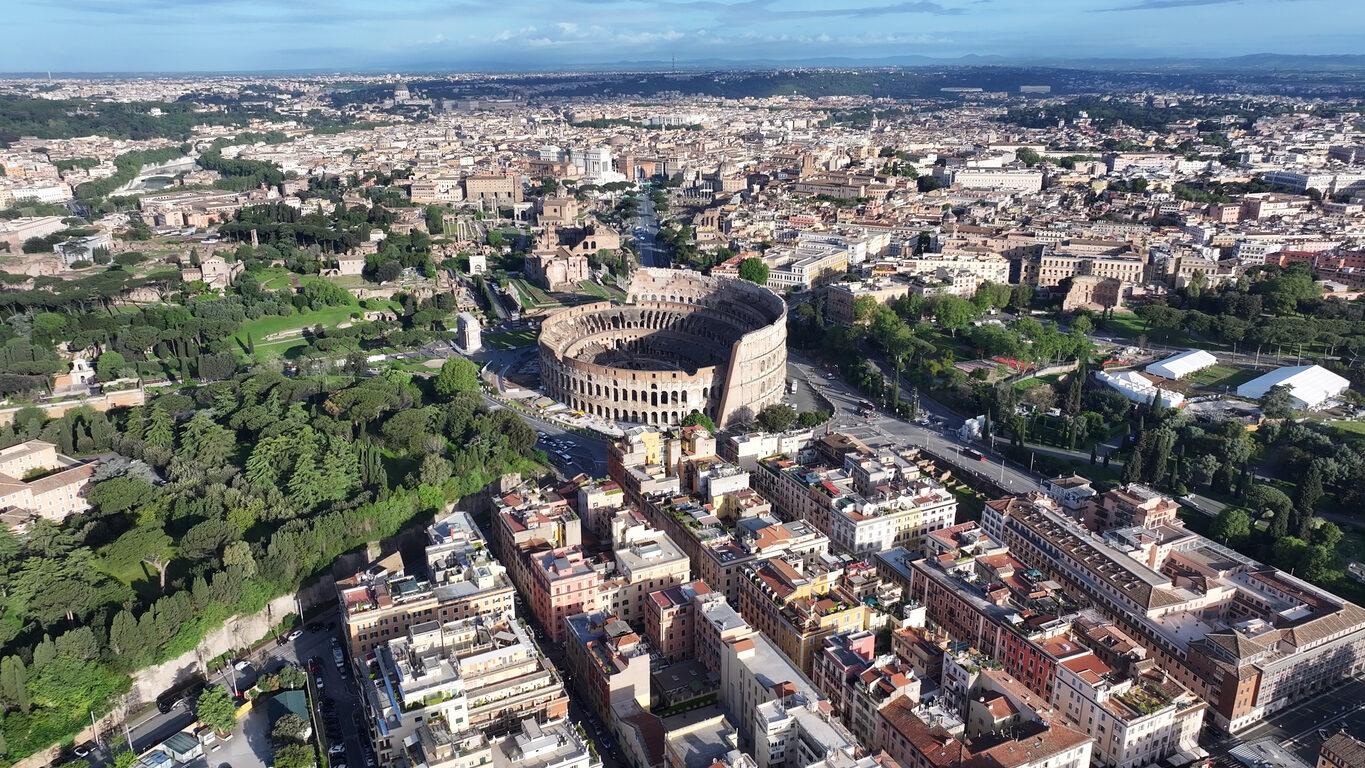November 2025 – We are proud to announce that the Lazio Region has become one of Efus’ newest members. With a population of 5.7 million and Rome as its regional capital, the Lazio Region is a political, cultural and economic powerhouse. We had a chat with Luisa Regimenti, Councillor for Local Police, Local Authorities, Urban Security, and University.
What are the main urban security issues affecting the Lazio Region?
Luisa Regimenti (LR): Statistics show that security is, after health, the area that most concerns Italian citizens. Without effective policy action on security, there can be no economic growth. Indeed, it is a prerequisite for regional development. This is why I proposed to include the issue of urban security in the Lazio Region’s five-year (2023-2028) regional development strategy.

Surveys on perceptions of safety in Lazio indicate that theft, fraud and assault are among the main concerns for residents. Various factors are at play here, notably urban decay, which is seen as a sign of neglect and lack of control. Broken pavements, neglected parks and graffiti-covered walls convey a sense of abandonment and disorder. Poor public lighting at night generates fear. The presence of squatter settlements, squatted buildings and infrastructure where crime rates are higher, such as train stations, also contributes to increasing feelings of insecurity, which are particularly high in the suburbs of large cities such as Rome.
In these areas, the lack of services, poverty and social marginalisation can contribute to a sense of abandonment and risk. This phenomenon highlights the need for an approach to urban security that is not limited to crime prevention, but also includes urban regeneration and efforts to strengthen social cohesion.
What are the regional authority’s main priorities in addressing these issues?
LR: The Lazio Region follows an integrated strategy on urban security that aims to strengthen the synergy between law enforcement agencies and local police forces, ensuring a multidimensional approach to preventing and combating crime.
The four main areas of intervention are:
- support for local police forces
- countering urban decay
- social crime prevention
- the dissemination of a culture of legality.
Support for local authorities is a fundamental pillar of regional action.
The Lazio Region is financing the purchase of new equipment, including vehicles suitable for different types of terrain and advanced communication systems. We also promote continuous staff training, with specialisation courses on emerging issues such as crisis management, cybercrime and the application of urban security regulations.This support strengthens the autonomy and effectiveness of municipalities in managing security in their own territory, enabling a faster and more efficient response to citizens’ needs.
“The Region intervenes on citizens’ perception of security through urban regeneration projects. A well-kept urban environment is a powerful crime prevention tool.”
The Region also intervenes on citizens’ perceptions of security through urban regeneration projects. This includes improving public lighting, maintaining green areas and redeveloping neglected public spaces, such as overpasses and underpasses. These interventions, based on the broken windows theory, go a long way to reducing citizens’ feeling of abandonment and disorder as they contribute to prevent petty crime. A well-kept and well-maintained environment is a powerful crime prevention tool.
Urban security goes far beyond controlling a given territory; it also includes the prevention of the root causes of crime. To this end, the Lazio Region funds projects aimed at preventing school dropout, promoting social inclusion and supporting the most vulnerable sections of the population. These programmes, which often involve schools and the third sector, aim to offer opportunities for growth and integration, reducing the risk factors that can lead to deviance and youth crime.
You said you are financing new equipment. Is technology an important part of your crime prevention strategy?
LR: Indeed, urban security challenges are becoming more complex and dynamic, and preventing and combatting them requires state-of-the-art equipment, such as high-resolution video surveillance systems, which allow for more effective and detailed monitoring of critical areas, and the use of Artificial Intelligence (AI) to analyse data in real time, identify patterns of suspicious behaviour, such as unusual gatherings or abandoned objects, and send automatic alerts to law enforcement agencies.
In this context, drones play a leading role, and their use for territorial control has been the subject of a significant investment by the Lazio Region. Through the Local Police 4.0 call for proposals, the Region has offered municipalities financial support for the purchase of such advanced equipment. In addition, the initiative included a professional training course for certified drone operators, ensuring that local police personnel are adequately trained to use these technologies effectively and safely, in full compliance with current regulations.
“We consider it a priority to develop projects based on AI, which represents a paradigm shift from a reactive approach, based on responding to an event that has already occurred, to a proactive and predictive one.“
How important is Artificial Intelligence (AI) in your current projects, and how are you implementing it?
LR: We consider it a priority to develop projects based on AI, which represents a paradigm shift from a reactive approach, based on responding to an event that has already occurred, to a proactive and predictive one.
AI-based systems can analyse vast amounts of data (video streams, traffic data, reports) in real time to identify patterns and anomalies that would be invisible to the human eye. This makes it possible to anticipate potential critical issues, optimise the use of resources and ensure a faster and more effective response. When used responsibly and in compliance with privacy regulations, such as the EU’s General Data Protection Regulation (GDPR), AI not only enhances the operational capabilities of police forces, but also contributes to creating a safer, more resilient and intelligently managed urban environment.
Specifically, following the approval of our first three-year plan for local police forces, we are working on an ambitious project to create and upgrade state-of-the-art control rooms capable of integrating data from multiple sources and using AI to support operational decisions in real time. The project has clear and measurable objectives, such as improving urban security interventions, reducing response times in emergencies and accidents through real-time data analysis, and optimising the management of local police resources by deploying personnel in a more strategic and targeted manner.
“The exchange of knowledge with other European and Italian organisations is crucial for addressing common issues such as the management of large events, territorial control and the prevention of radicalisation leading to violence.“
As a new member of Efus and the Italian Forum for Urban Security (FISU), what do you expect from having joined the network?
LR: The Lazio Region’s membership of strategic networks such as Efus and FISU (Italian Forum for Urban Security) is a fundamental step towards addressing urban security challenges in a collaborative and innovative way.
This partnership offers us an opportunity to engage with other European and Italian public authorities and organisations, learning from their experiences and inspiring practices. This exchange of knowledge is crucial for addressing common issues such as the management of large events, territorial control and the prevention of radicalisation leading to violence.
The Lazio Region, in turn, can contribute its experience in managing security in a large metropolitan area with a unique historical and cultural heritage, such as Rome. Another benefit s that being an Efus member will open opportunities to take part in EU-financed research and innovation projects aimed at developing new methodologies and technologies for urban security. We would do so through international consortiums, collaborating with other European cities and institutions to develop joint projects on specific issues, such as the safety of public places, the prevention of youth crime or the management of tourist flows, sharing data and analysis, and accessing specialised training.
This collaborative approach and the ability to draw on global resources and knowledge would contribute to put the Lazio Region at the forefront of urban security policies, becoming as such a benchmark for innovation and best practices in the sector.
Photo above: The Coliseum in Rome, Lazio Region, ©iStock Cristian Lourenço




